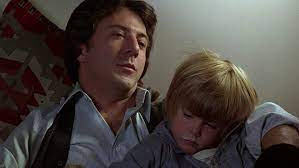Life of Brian
Monty
Python is not for everyone, but it totally works for me.
My son is
very much into Monty Python too and has been eager to watch “Life of Brian”
with me for some time. Friday evening it was finally it, and we had a blast. The
verdict was overwhelmingly positive from both of us.
“Life of
Brian” is the second feature length movie from the Monty Python group following
“Monty Python and the Holy Grail” (1975) and several seasons of their “Flying circus”
show. “Life of Brian” is a parallel story to the life of Jesus, creating a
character, Brian, who was born in a stable next door to Jesus. Everything Brian
experiences is however absurd in the extreme. He wants to fight the Romans, but
the revolutionary groups are extremely fractured and more interested in dogma
and fighting each other. He gets mistaken for a prophet and find himself with
an unwanted and enthusiastic following and finally is he gets crucified following
a botched raid on Pilates palace. He is actually pardoned, but his neighbor on
the cross is released instead of him.
Sounds
horrible, actually, but it is so absurdly carried out that it is hilariously funny.
As was the
case with “The Holy Grail”, the movie is essentially a series of sketches only
very loosely tied together. The sketches tend to get tangential to the story,
working out in directions that are amusing but not exactly helpful to the
overall story and at times it gets outright wacky, such as when Brian briefly
gets abducted by an alien spaceship and find himself in the middle of a space
dogfight only to crash right where he was picked up.
When we
discussed the movie afterwards, we both picked the stoning scene as our favorite.
So, what is so funny about a stoning, you may ask. Only men can attend a
stoning so everybody there are women wearing fake beards. The accused has
uttered the Lord’s name and must be stoned, but this results in the name being
mentioned repeatedly followed by throwing of stones until it ends in chaos. Well,
you kind of have to watch it.
The Monty
Python team is Graham Chapman, John Cleese, Terry Gilliam, Eric Idle, Tery
Jones and Michael Palin. As usual they all play multiple parts, which may sound
confusing, but makes perfect sense in the moment. Each of them have their specialty
sort of character that they do amazingly will, and I will just briefly mention
Cleese as Roman soldier/policeman and Palin as Pilate with a speech deficiency
(what is so funny about a name like Naughtius Maximus or Biggus Dickus?).
The controversy
around “Life of Brian” is that it is accused of being blasphemous, mocking
Jesus and Christianity. As usual, religious hardliners have no sense of humor.
Actually, the movie is quite respectful about Jesus himself. It is everything
else it is mocking. Fractured political revolutionaries, religious zealousness,
barbaric practices, authoritarian policing and everything in between. It is
satire, but it is satire on conventions, institutions and human folly, not on
the religious message. That, in fact, is skirted quite neatly.
One should
always be careful looking for a message or a point in Monty Python’s material.
I do not think sending a message as such was their objective in general. If
anything should be extracted though, it would be that life is full of absurdity
and there is very little you can actually control, so you just have to get the
best out of it. This, almost insane, optimism is most clearly on display in the
end sequence when Brian is crucified by mistake and has been deserted by all family
and relations to die a horrible death. In this, worst of all situations, the
prisoners hanging around him starts to sing:
If life seems jolly rotten
There's
something you've forgotten
And
that's to laugh and smile and dance and sing
When
you're feeling in the dumps
Don't be
silly chumps
Just
purse your lips and whistle, that's the thing
And
Always
look on the bright side of life
If you can keep
optimistic in the face of such adversity, nothing will knock you down.
I like that
idea.
Highly
recommended.




